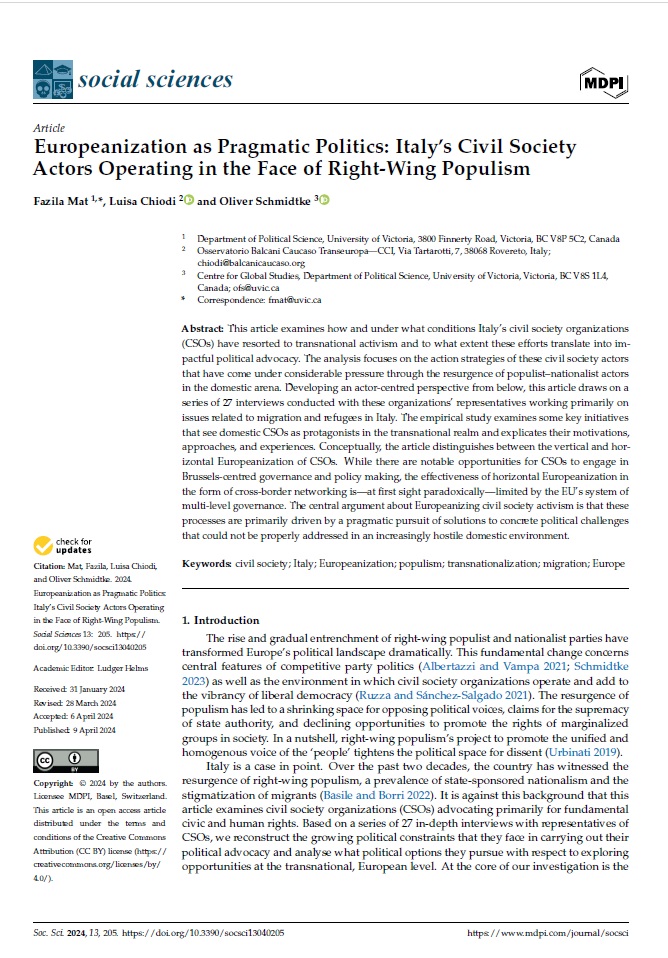
Soc Sci
Categoria: Migrazioni, Politica, Società civile, Unione europea
Tag: Europeizzazione, Populismo
Lingua: Inglese
We would like to acknowledge that this article draws on research supported by the Social Sciences and Humanities Research Council of Canada (grant number 435-2019-0461) and the Erasmus+ Programme of the European Union under the Jean Monnet Network “Transnational Political Contention in Europe” (TraPoCo) (grant number: 620881). The European Community’s support for the production of this publication does not constitute an endorsement of the contents, which reflect the views of the authors. The EC cannot be held responsible for any use which may be made of the information contained therein.
Europeanization as Pragmatic Politics: Italy’s Civil Society Actors Operating in the Face of Right-Wing Populism
04/2024 - Autrici: Fazıla Mat, Luisa Chiodi, Oliver Schmidtke
Social Sciences, 13(4)
This article examines how and under what conditions Italy’s civil society organizations (CSOs) have resorted to transnational activism and to what extent these efforts translate into impactful political advocacy. The analysis focuses on the action strategies of these civil society actors that have come under considerable pressure through the resurgence of populist–nationalist actors in the domestic arena. Developing an actor-centred perspective from below, this article draws on a series of 27 interviews conducted with these organizations’ representatives working primarily on issues related to migration and refugees in Italy. The empirical study examines some key initiatives that see domestic CSOs as protagonists in the transnational realm and explicates their motivations, approaches, and experiences. Conceptually, the article distinguishes between the vertical and horizontal Europeanization of CSOs. While there are notable opportunities for CSOs to engage in Brussels-centred governance and policy making, the effectiveness of horizontal Europeanization in the form of cross-border networking is—at first sight paradoxically—limited by the EU’s system of multi-level governance. The central argument about Europeanizing civil society activism is that these processes are primarily driven by a pragmatic pursuit of solutions to concrete political challenges that could not be properly addressed in an increasingly hostile domestic environment.




